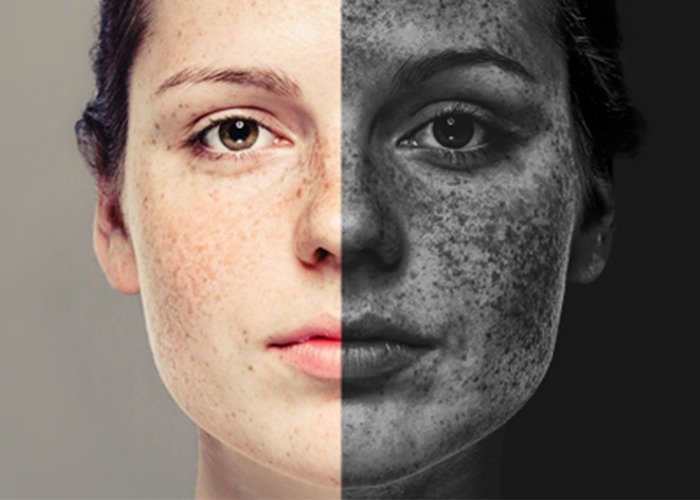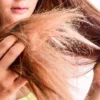Hidden Dangers: How Air Pollution Affects Your Skin and Hair
Air pollution is a growing concern in urban environments, posing significant health risks to our overall well-being. While much attention has been focused on the impact of pollution on our respiratory and cardiovascular systems, the effects on our skin and hair are equally important. Hidden Dangers Understanding how air pollution affects these parts of our body can help us take proactive steps to protect and maintain our health. This article explores the hidden dangers of air pollution on our skin and hair, and offers practical tips to mitigate these effects .

Understanding Air Pollution
Air pollution consists of a complex mixture of harmful substances, including particulate matter (PM), volatile organic compounds (VOCs), heavy metals, and polycyclic aromatic hydrocarbons (PAHs). These pollutants originate from various sources such as vehicle emissions, industrial activities, and household chemicals. When these pollutants come into contact with our skin and hair, they can cause a range of adverse effects.
Impact of Air Pollution on Skin
1. Accelerated Aging
One of the most significant effects of air pollution on the skin is accelerated aging. Pollutants like PM and PAHs generate free radicals, unstable molecules that damage skin cells and collagen, leading to premature wrinkles, fine lines, and age spots.2. Inflammation and Irritation
Pollutants can penetrate the skin’s barrier, causing inflammation and irritation. This can result in conditions such as eczema, dermatitis, and acne.
3. Hyperpigmentation
Exposure to air pollution has been linked to an increase in hyperpigmentation, particularly in areas frequently exposed to the sun, such as the face and hands. Pollutants can exacerbate the production of melanin, leading to dark spots and uneven skin tone.
4. Dehydration and Dullness
Air pollution can strip the skin of its natural oils, leading to dehydration and a dull, lifeless appearance. The pollutants in the air can impair the skin’s ability to retain moisture, making it dry and flaky.
Impact of Air Pollution on Hair
1. Hair Loss and Thinning
Air pollution can have a detrimental effect on hair follicles, leading to hair loss and thinning. Pollutants such as heavy metals and PAHs can cause oxidative stress on the scalp, damaging hair follicles and inhibiting hair growth.
2. Dryness and Brittle Hair
Pollution can strip the hair of its natural oils, making it dry, brittle, and prone to breakage. The buildup of pollutants on the scalp can clog hair follicles, preventing the natural oil, or sebum, from nourishing the hair shaft.
3. Scalp Irritation
The scalp is particularly vulnerable to the effects of air pollution. Pollutants can cause inflammation and irritation, leading to conditions such as dandruff, itching, and seborrheic dermatitis. A compromised scalp environment can hinder healthy hair growth and result in a flaky, irritated scalp.
4. Loss of Natural Shine
The accumulation of pollutants on the hair can make it look dull and lackluster. Heavy metals and other pollutants can coat the hair shaft, reflecting less light and reducing the natural shine and vibrancy of the hair Hidden Dangers.
Practical Tips to Combat the Effects of Air Pollution on Skin and Hair
- Cleanse Regularly: Washing your face and hair regularly helps remove pollutants that accumulate throughout the day. Use gentle, sulfate-free cleansers and shampoos to avoid stripping the skin and hair of natural oils.
- Antioxidant-Rich Products: Incorporate skincare and hair care products that contain antioxidants like vitamin C, vitamin E, and green tea extract. These ingredients help neutralize free radicals and protect against oxidative stress.
- Hydrate and Moisturize: Keep your skin and hair well-hydrated by using moisturizers and conditioners that lock in moisture. Look for products with hyaluronic acid, glycerin, and natural oils to maintain hydration.
- Protective Hairstyles: Consider wearing protective hairstyles or covering your hair with a hat or scarf when exposed to high pollution levels. This can minimize direct contact with pollutants and reduce hair damage.
- Diet and Supplements: A healthy diet rich in antioxidants, vitamins, and minerals can support your skin and hair health from within. Foods like berries, nuts, and leafy greens provide essential nutrients that combat the effects of pollution.
- Air Purifiers: Using air purifiers at home can help reduce indoor air pollution levels, providing a cleaner environment for your skin and hair.
- Sun Protection: Apply sunscreen daily to protect your skin from UV rays and pollution. Look for sunscreens that offer broad-spectrum protection and contain antioxidants for added defense.
- Regular Exfoliation: Exfoliating your skin regularly helps remove dead skin cells and pollutants that can clog pores. Choose gentle exfoliants to avoid irritation.
DIY Hair Masks to Repair Pollution-Damaged Hair
Conclusion
Air pollution is an unavoidable reality in many urban environments, but its impact on skin and hair should not be underestimated. By understanding the hidden dangers of air pollution and taking proactive measures to protect ourselves, we can mitigate its effects and maintain healthy, vibrant skin and hair. Regular cleansing, using antioxidant-rich products, staying hydrated, and adopting a healthy lifestyle are essential steps in combating the adverse effects of air pollution.







Leave a reply